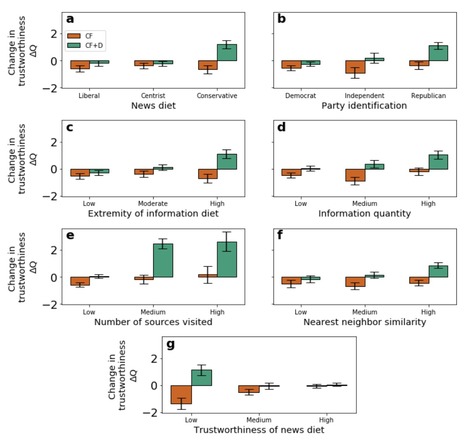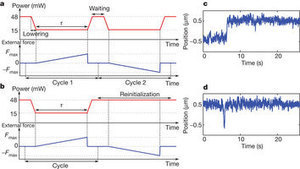Saumya Bhadani, Shun Yamaya, Alessandro Flammini, Filippo Menczer, Giovanni Luca Ciampaglia & Brendan Nyhan
Nature Human Behaviour (2022)
Newsfeed algorithms frequently amplify misinformation and other low-quality content. How can social media platforms more effectively promote reliable information? Existing approaches are difficult to scale and vulnerable to manipulation. In this paper, we propose using the political diversity of a website’s audience as a quality signal. Using news source reliability ratings from domain experts and web browsing data from a diverse sample of 6,890 US residents, we first show that websites with more extreme and less politically diverse audiences have lower journalistic standards. We then incorporate audience diversity into a standard collaborative filtering framework and show that our improved algorithm increases the trustworthiness of websites suggested to users—especially those who most frequently consume misinformation—while keeping recommendations relevant. These findings suggest that partisan audience diversity is a valuable signal of higher journalistic standards that should be incorporated into algorithmic ranking decisions.
Read the full article at: www.nature.com



 Your new post is loading...
Your new post is loading...











